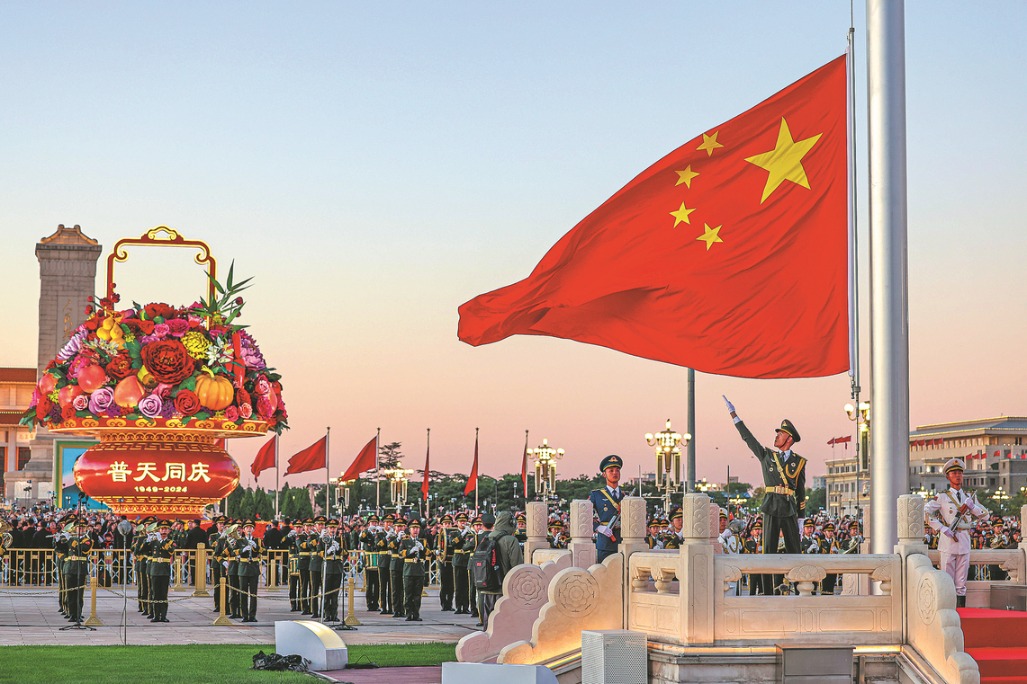To be fit for purpose


YIN YIYUAN/FOR CHINA DAILY
WTO must bolster its multilateral credentials to become a bulwark for a healthy trade system
The World Trade Organization has come under relentless pressure to reform. The WTO's 13th Ministerial Conference in Abu Dhabi, the United Arab Emirates, at the end of February is an opportunity to address the necessity of increasingly urgent reforms needed to counter the trend toward global trade protectionism.
Although there are variations in the reform suggestions, the proposals reflect two different understandings of the role the WTO should play in setting the environment for international trade.
The first approach supports the WTO but wants it to acknowledge the changes in global relationships to upgrade the significance of the Global South and the complexity of these economies. The proposals for this approach support a multilateral solution. They favor greater representation in the way decisions are made so that the WTO more accurately reflects the changing balance of economic activity. China is the champion of this multilateral approach which recognizes the significance of the Global South.
Established in 1995, the WTO and its decision-making structures have been dominated by the United States with effective veto power over critical appointments and processes. The US wanted to use its economic power to unilaterally shape the world in its own image. Despite this, the WTO was able to achieve a few significant changes, but there were rarely changes that disadvantaged the US.
Many in the US believed China's membership of the WTO would push China toward US-style capitalism and democracy. They have increasingly resented this decision as China's economy has gone from strength to strength without it becoming like the US. As their resentment grew, so too did the desire to blame the WTO.
The second approach, led by the US, harbors deep suspicions about the WTO because in recent years their unilateral dominance has been challenged. Starting with former president Donald Trump, the US has worked assiduously to undermine the authority and operation of the WTO.
This has included unilateral sanctions, illegal trade protection policies, tariffs and subsidies often under the spurious cover of national security. Even now, the Joe Biden administration is considering further tariff hikes on electric vehicles, solar power equipment and less-advanced semiconductors, with a decision expected in the first half of this year. There is no indication of a change in policy no matter who wins the 2024 election.
The idea of reform in this US-led approach is to ensure the WTO remains an extension of US foreign policy. Already the US uses its veto power to disrupt the operation of the WTO, most notably by the four-year delay in confirming the appointment of the Appellate Body judges. This denies all WTO members their legal right to a binding, two-stage dispute settlement process which is a fundamental pillar of the WTO system.
An alternative trade dispute mechanism has been endorsed by China and Australia, and although effective, it is a stopgap measure. However, this also provides a template for multilateral solutions. Although China and Australia come to the WTO from different perspectives, they both understand that it is no longer appropriate for WTO operations to be dominated by the US.
To be effective and relevant, the WTO must bolster its multilateral credentials to become a bulwark against any attempt to dominate WTO operations. Reform means the WTO must acknowledge the change in the balance of economic power both in terms of China and the economic consolidation of the Global South.
China has led the initiative to broaden the multilateral foundations of the WTO. China has cited the need for specific actions to resolve crucial and urgent issues threatening the existence of the WTO, increased its relevance in global economic governance and improved the operational efficiency of the WTO.
These reforms have been recognized and endorsed by global business groups. The International Chamber of Commerce is urging trade ministers to reaffirm the common purpose of the WTO, to agree on a coherent and holistic vision for WTO reform based on the organization's founding principles, and to deliver on a work program for WTO reform covering negotiations, dispute resolution, and monitoring and deliberative functions.
The US wants to change the way that the more than two-thirds of WTO members are designated as developing countries, or which are classified as least developed countries, in line with United Nations criteria.
A group of 13 members called for the WTO's negotiating function to be reinvigorated, citing the need to safeguard and strengthen the WTO's dispute settlement mechanism as a central pillar of the WTO. Some countries have called for updating WTO rules to reflect the 21st century realities that require flexible and open negotiating approaches delivering multilateral outcomes.
Achieving consensus in the WTO is always a challenge and the Abu Dhabi meeting will be no different in this respect. However, the unity in the aspirations of the Global South, endorsed and supported by China, brings a new authority to the deliberations that recognizes the world has changed since 1995 and following the 2008 global financial crisis.
Reform of the WTO is a necessity and China is supporting its reinvigoration for an open and multilateral trading environment fit for purpose in the 21st century.
The author is an international financial technical analysis expert and a former national board member of the Australia China Business Council. The author contributed this article to China Watch, a think tank powered by China Daily. The views do not necessarily reflect those of China Daily.
Contact the editor at editor@chinawatch.cn
































